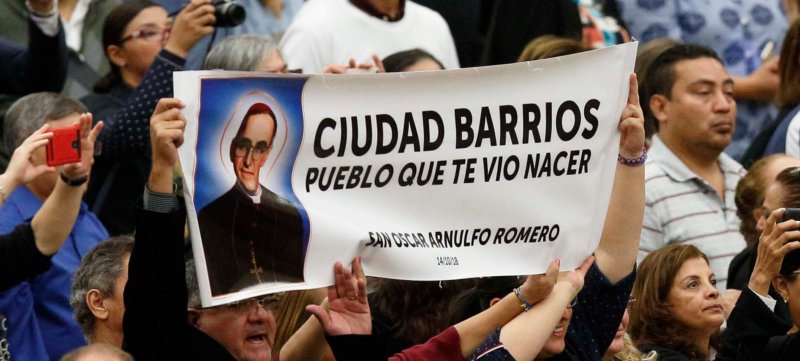VATICAN CITY — Time, experience and reflection have “purified” liberation theology and its attempts to make clear what the Gospel says about social injustice, Pope Francis said.
“Today, we old people laugh about how worried we were about liberation theology,” the pope told 30 Jesuits from Central America when he met them Jan. 26 in Panama during World Youth Day.
“Let me tell you a funny story,” he told the Jesuits. “The one most persecuted, (Dominican Father) Gustavo Gutierrez, a Peruvian, concelebrated Mass with me and the then-prefect of the Congregation for the Doctrine of the Faith, Cardinal (Gerhard) Muller. And it happened because Muller himself brought him to me as his friend.”
“If anybody had said back then that the prefect of the CDF would have brought Gutierrez to concelebrate with the pope, they would have taken him for a drunk,” the pope told the Jesuits.
A transcript of the pope’s question-and-answer session with his Jesuit confreres in Panama was published Feb. 14 by La Civilta Cattolica. The Rome-based Jesuit journal generally publishes the transcripts of Pope Francis’ meetings with Jesuits after the pope has had a chance to review them.
Speaking with the Central American Jesuits, Pope Francis did not specify when he concelebrated with Father Gutierrez, but it might have been in September 2013, when the two had a private meeting at the Domus Sanctae Marthae, where the pope lives and where he celebrates daily Mass.
Liberation theology emerged in Latin America in the 1960s and 1970s, looking to Scripture for the principles and inspiration for freeing people from unjust social situations. Its starting point was the concrete situation of Latin America’s poor and how they understand the Scriptures as relating to them in their struggles for freedom from sin and injustice.
During the 1980s, the Vatican’s doctrinal office under then-Cardinal Joseph Ratzinger, the future Pope Benedict XVI, issued two major documents on liberation theology, praising the movement’s concern for the poor and for justice, but condemning a tendency to rely too heavily on Marxist social analysis.
Central American Jesuits were “the pioneers” in the Christian struggle for social justice, the pope said. And while some proponents of liberation theology made mistakes, others in the church made blanket condemnations of the theology and even of all Central American Jesuits, he said.
While some Catholic leaders were suffering with their people in Central America, the pope said, other “members of the ecclesiastical hierarchy were very close to the regimes of the moment, they were very ‘inserted.'”
Pope Francis told the Jesuits how he once asked a Central American bishop how the sainthood process was progressing for the assassinated Archbishop Oscar Romero of San Salvador. “He replied: ‘Absolutely out of the question. It would be like canonizing Marxism.’ That was just the prelude. He went on in the same vein.”
Pope Francis canonized St. Romero in October.
But, he told the Jesuits in Panama, he came to appreciate St. Romero through his admiration for Jesuit Father Rutilio Grande, a friend of St. Romero’s who was assassinated in 1977.
“Rutilio is very dear to me,” the pope said. “At the entrance to my room there is a frame containing a piece of cloth with Romero’s blood and notes from a catechesis by Rutilio. I was a devotee of Rutilio even before coming to know Romero better. When I was in Argentina, his life influenced me, his death touched me.”
“Well-informed people,” he said, have told him progress is being made in preparing the church’s official recognition of Father Grande as a martyr, which would clear the way for his beatification.
Father Grande, he said, was a “prophet” and “he ‘converted’ Romero,” who became much more outspoken in defense of the poor after his Jesuit friend was shot down.
The slain Jesuit, the pope said, was “a prophet by the testimony of his life” and not just by what he taught and said. “He said what he had to say, but it was his testimony, his martyrdom, that eventually moved Romero.”
Copyright ©2019 Catholic News Service/U.S. Conference of Catholic Bishops.


